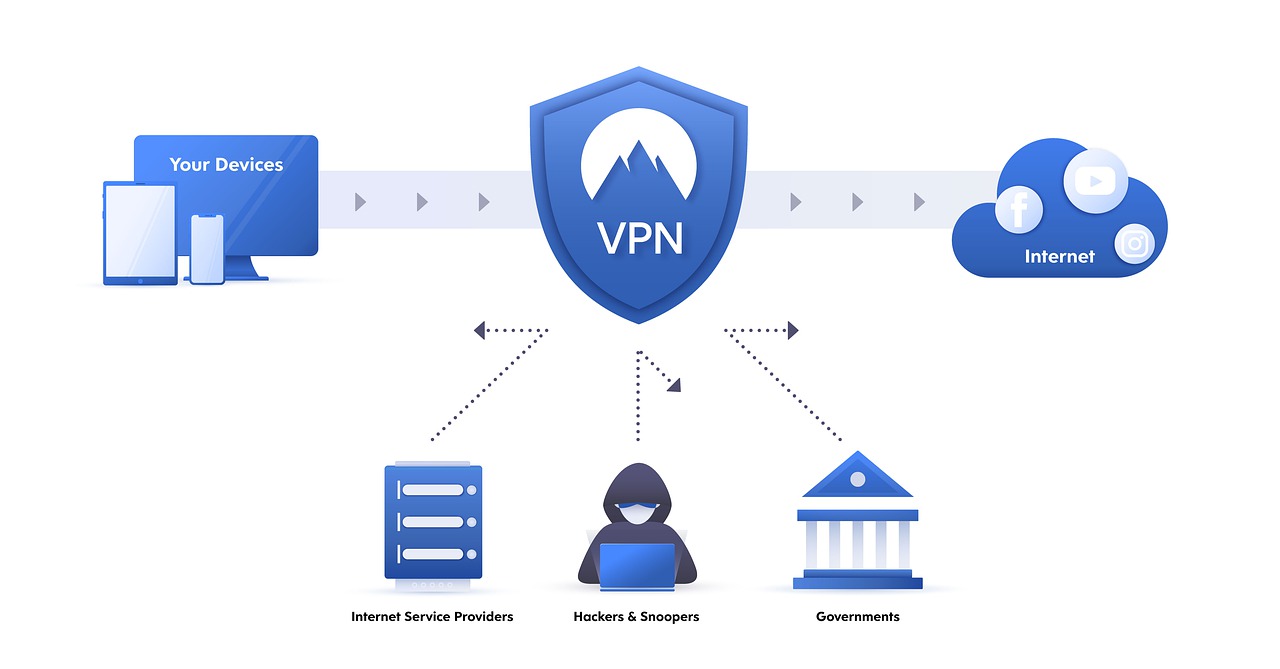With the rapid development of globalization, cross-border e-commerce has become one of the most important ways for companies to expand their markets and increase sales. However, cross-border e-commerce faces many challenges, including geographic restrictions, market competition and price volatility. In this competitive environment, Virtual Private Network (VPN) is gradually becoming a powerful tool for cross-border e-commerce enterprises to help them achieve their goals of market expansion, price monitoring and global sales.

1. Introduction and Principle of VPN
VPN, or Virtual Private Network, is a technology that establishes a secure connection through a public network (such as the Internet). It enables anonymous and secure network access globally by encrypting communication data while hiding the user's real IP address. This makes VPN a powerful tool for cross-border e-commerce.
The working principle of a VPN is very simple and straightforward. When a user connects using a VPN, his or her network traffic will be relayed through a VPN server, which will then forward it to the target website or application, realizing encryption and privacy protection for data transmission. By choosing the right VPN server location, users can act as if they are located in another country or region, thus bypassing geographic restrictions and access limitations.
2. Market Expansion: Remove Geographic Restrictions and Reach Global Consumers
Cross-border e-commerce enterprises often face geographical restrictions in different countries and regions, and certain regions may restrict the sales of specific products or services due to policies, cultural differences and other reasons. By using a VPN, businesses can choose to connect to servers in other countries and simulate access by local users, thus bypassing geographic restrictions and realizing global sales of goods.
For example, a Chinese cross-border e-commerce business wants to expand its products to the European market. They can use a VPN to connect to a server in Europe and access local e-commerce platforms to understand market demand and competitive landscape. This allows the company to better understand local consumer preferences and adjust product positioning and marketing strategies to achieve greater success in the global market.
3. Monitoring prices: real-time understanding of market dynamics and development of competitive strategies
In cross-border e-commerce, it is crucial to understand the price levels of different markets and competitors' pricing strategies. Price monitoring can help companies adjust their pricing in a timely manner to remain competitive and better meet consumer demand. VPN play a key role in this regard.
Using a VPN, cross-border e-commerce companies can connect to servers in different countries and anonymously access competitors' websites and e-commerce platforms for real-time pricing information. For example, a US-based cross-border e-commerce business wants to know the pricing of similar products in the European market. They can access European e-commerce platforms by connecting to a VPN server in Europe to learn about price ranges and promotions for various products. This allows companies to adjust their pricing strategy in a timely manner according to market dynamics, keeping in line with competitors or offering a more attractive price advantage.
4. Realizing global sales: guaranteeing secure payment and data transmission
For cross-border e-commerce, the security of users' payment information and the protection of data transmission are particularly important. encrypted communication provided by VPN can ensure that the user's payment information is not stolen or snooped on during the transmission process, thus enhancing the user's sense of security in payment and facilitating the smooth progress of cross-border transactions.
In addition, VPN can maintain users' personal privacy and reduce the risk of data leakage. Users can use VPN to connect to secure servers to prevent personal information from being stolen or spied on during transmission. This makes users more willing to shop and transact on cross-border e-commerce platforms, facilitating the realization of global sales.
5. How to choose the right VPN service?
When using a VPN for cross-border e-commerce, it is especially important to choose the right VPN service provider. Here are some considerations:
a.Server Location: Choose a server location that covers your target market to ensure that you have access to the desired e-commerce platforms and websites.
b. Speed and Stability: Choose a VPN service with faster speeds and stable connections to ensure smooth data transfer and avoid affecting user experience.
c. Encryption and Privacy Protection: Ensure that the VPN provides strong encryption technology to safeguard users' payment information and personal data.
d. Customer Support: Choose a VPN service provider that offers 24/7 customer support to get timely help when needed.
6. Conclusion
With the development of the global market and the booming of e-commerce, cross-border e-commerce has become an important way for many companies to expand their business and increase sales. In this competitive environment, VPN serves as a powerful tool to help companies achieve their goals of market expansion, price monitoring and global sales. By lifting geographic restrictions, understanding market dynamics in real time, and safeguarding payment security and data privacy, VPN bring more opportunities and advantages to cross-border e-commerce. By choosing the right VPN service, businesses can better utilize this tool to achieve success in the global marketplace.
 Email
Email